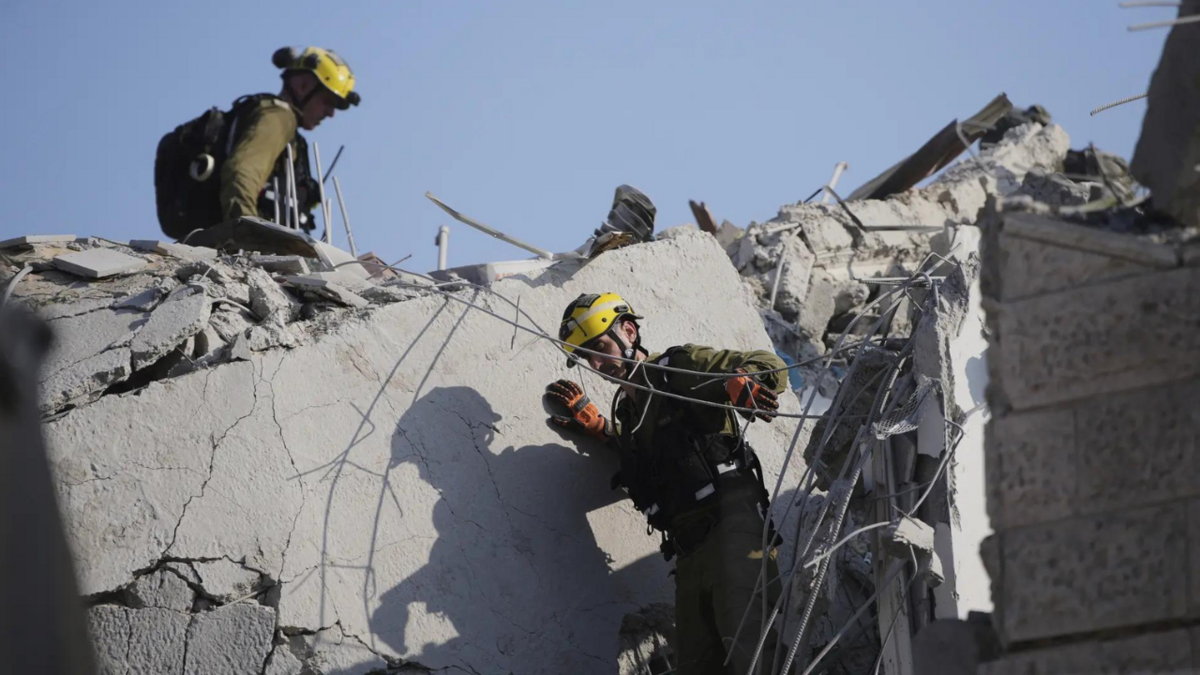Middle East Crisis Deepens with Exchange of Missile Attacks Between Israel and Iran
Tel Aviv and Tehran are reeling after multiple waves of missile attacks exchanged between Israel and Iran early Saturday morning intensified fears of a broader regional escalation. The fresh clashes, which resulted in injuries and at least one confirmed death in Israel, mark one of the highest points of military confrontation between the two long-standing adversaries in recent years.
Massive Airstrikes Rock Tel Aviv and Tehran
Residents of Tel Aviv and Jerusalem awoke before dawn to the sound of air raid sirens, rushing to bomb shelters as Israel’s Iron Dome air defense systems lit up the sky. According to the Israeli military, dozens of missiles were launched from Iran. While many were intercepted, some managed to hit targets within Israeli territory.
Israeli media reported a suspected missile impact in Tel Aviv, while Jerusalem residents also heard multiple explosions. Although the exact nature of these strikes remains unconfirmed — whether they stemmed from Iranian missile hits or Israeli interception failures — the Israeli government issued an urgent message advising citizens to remain in protected spaces until further notice.
“Our air defense systems are continuing to operate around the clock to protect Israeli civilians,” an Israeli Defense Forces (IDF) spokesperson said during a morning briefing.
Iran Vows ‘Painful Revenge’ Amid Third Wave of Strikes
In quick retaliation, Tehran launched multiple airstrikes starting Friday night, culminating in a third wave Saturday morning. Iranian news agency Far confirmed that key Israeli military positions and strategic sites were targeted. The strikes come in response to Israel’s earlier offensive on Iranian soil reportedly aiming at nuclear installations, high-ranking military commanders, and nuclear scientists.
Iran’s Supreme Leader Ayatollah Ali Khamenei did not mince words, placing full blame on Israel for instigating the conflict. “The Iranian nation must be guaranteed that our response will not be half-measured,” he stated during a televised speech. A senior unnamed Iranian official echoed that sentiment, warning: “Nowhere in Israel will be safe, and our revenge will be painful.”
Israel Responds with Force as Global Leaders Watch
Following Iran’s retaliatory missile attacks, Israeli Prime Minister Benjamin Netanyahu delivered a stern warning in response: “More is on the way.” His brief, ominous statement signals Israel’s readiness to escalate the military campaign further, should Iran continue its offensive.
The IDF has neither confirmed nor denied the extent of casualties or infrastructure damage within its borders. However, Israel’s national ambulance service reported treating 34 individuals for injuries related to the strikes in the Tel Aviv area, mostly minor. Police have confirmed one fatality from the conflict so far.
U.S. Military Intervenes, Nuclear Talks Collapse
As fears grow over a broader Middle East conflict, new reports confirm that the U.S. military assisted Israel in intercepting Iranian missiles. According to two senior American officials, U.S. forces deployed regional missile defense systems to help neutralize threats seen heading toward Israeli targets.
Despite the defense assistance, diplomatic efforts suffered a major blow as Iran declared ongoing nuclear negotiations with the United States “meaningless.” Former U.S. President Donald Trump, who remains an influential figure in international diplomacy, suggested that Tehran could halt the Israeli bombardment by engaging in renewed talks. However, with the collapse of the talks and active warfare intensifying, such diplomatic overtures may no longer hold ground.
Regional Spillover Risks and Ally Setbacks
The escalating missile exchanges have triggered alarm bells across the region, raising concerns about a spillover of the conflict to other Middle Eastern countries. Analysts warn that a full-blown war could pull regional powers and global actors into a prolonged and bloody confrontation.
Interestingly, Iran’s traditional allies—Hamas in Gaza and Hezbollah in Lebanon—have not been visibly active in this round of conflict. Following extensive Israeli operations over recent months, both groups are reported to be significantly weakened. This leaves Iran more isolated in its current military endeavors, even as it aims to showcase strength through retaliation.
Civilian Impact and Global Reactions
Civilians on both sides are bearing the harsh brunt of the escalating hostilities. From students huddled in shelters in Tel Aviv to families evacuated from homes in Tehran, the conflict is pushing societies to the edge in both countries.
Global leaders have responded with calls for de-escalation. The European Union issued a cautious statement condemning violence and urging Israel and Iran to return to diplomatic channels. Meanwhile, the United Nations scheduled an emergency session to discuss the security implications of the bilateral strikes.
Conclusion: A Dangerous Turning Point
The current confrontation between Israel and Iran marks one of the most intense military exchanges in a decade and has the potential to destabilize much of the Middle East. With both nations trading missiles and rhetorical threats, and with diplomacy appearing futile for now, the international community watches anxiously for the next move in this unfolding crisis.
As both sides prepare for potential further escalation, the priority remains the safety of civilians and a call for immediate restraint to avoid a humanitarian catastrophe.

